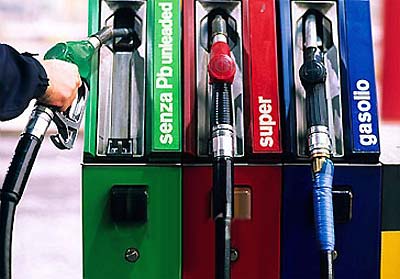The political crisis and chaos generated by the popular uprising and violent reaction from the government in Libya have pushed up the price of oil. Italy's economy pays because its large exposure to Libya, which is the largest supplier of oil in our country. Algeria and Libya are worth 3 million barrels per day, or about 4 percent of the world: "They have produced in January, respectively, 1.56 and 1.26 million barrels a day," says Leo Drollas, chief economist at the Centre for Global energy studies.
Even in the worst possible scenario, disruption of supply from North Africa, Saudi Arabia's spare capacity could compensate. "The problem becomes more serious if Saudi Arabia, the World Bank oil (20 % of global reserves), would face an extremely serious situation. Even David Fyfe, head of the oil market and industry division of the International Energy Agency (IEA or, in English, IEA) at the International Petroleum Week in London, reassures consumers by stating that the crisis in Libya should not scare much, because members have IEA stocks to 16 billion barrels, equivalent to 4 million barrels a day for 12 months.
In 2010, prices increased by 25% but more than the record high average price weighs on the economy annually. Explain the journalist Maurizio Ricci: "Last year, the average price was just below $ 80 a barrel. In 2008 - when, against a record $ 147 a barrel in July, there was also a minimum of $ 39 in December - the annual average price of $ 99.67 was just under $ 100 today.
That price of oil, according to more than an economist, was one of the crucial levers of the recession. " However, the upward trend, which has led us to tap the 1, 50 € / liter in the national distributors even before the crisis of the Libyan resources, seems to have no reason to slow its course.
With touches of these days, the average prices of petrol (mode served) vary between 1, 507 € / liter of it and 1, 515 of Tamoil. Although it is unlikely, as the experts say, when it is not inconceivable that oil prices will return before the end of the peak in 2008. 


Even in the worst possible scenario, disruption of supply from North Africa, Saudi Arabia's spare capacity could compensate. "The problem becomes more serious if Saudi Arabia, the World Bank oil (20 % of global reserves), would face an extremely serious situation. Even David Fyfe, head of the oil market and industry division of the International Energy Agency (IEA or, in English, IEA) at the International Petroleum Week in London, reassures consumers by stating that the crisis in Libya should not scare much, because members have IEA stocks to 16 billion barrels, equivalent to 4 million barrels a day for 12 months.
In 2010, prices increased by 25% but more than the record high average price weighs on the economy annually. Explain the journalist Maurizio Ricci: "Last year, the average price was just below $ 80 a barrel. In 2008 - when, against a record $ 147 a barrel in July, there was also a minimum of $ 39 in December - the annual average price of $ 99.67 was just under $ 100 today.
That price of oil, according to more than an economist, was one of the crucial levers of the recession. " However, the upward trend, which has led us to tap the 1, 50 € / liter in the national distributors even before the crisis of the Libyan resources, seems to have no reason to slow its course.
With touches of these days, the average prices of petrol (mode served) vary between 1, 507 € / liter of it and 1, 515 of Tamoil. Although it is unlikely, as the experts say, when it is not inconceivable that oil prices will return before the end of the peak in 2008.



No comments:
Post a Comment